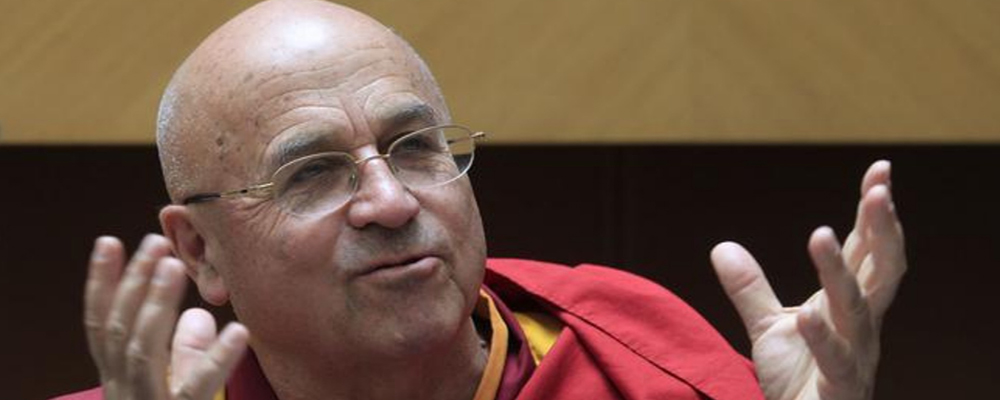
Copyright @ Sébastien SORIANO/Le Figaro
The world is appalled by the unspeakable violence perpetrated by the Burmese army against the Rohingyas, seemingly with the blessing of members of the Buddhist clergy. The humanitarian organization, Doctors Without Borders, estimates that over 6,000 people have been killed, all civilians, including children and women. When 600,000 people flee their homes so dramatically, it is clear that they are terrified by what they have witnessed or experienced.
This ethnic cleansing is all the more shocking as it was perpetrated by a Buddhist country that should be following the principles of non-violence. As the Dalai Lama has repeatedly said: “There is no justification in Buddhism for using violence in order to attain any goal whatsoever.” He recently spoke about the situation in Burma: “Buddha would have definitely helped those poor Muslims.” In a letter, he urged Aung San Suu Kyi to find a peaceful solution to the Rohingyas crisis: “As a fellow Buddhist and Nobel Laureate, I am appealing to you and your colleagues once more to find a lasting and humane solution to this festering problem.”
Buddhism is unequivocal in its condemnation of violence. There is not a single sentence in its canonical scriptures that could be interpreted as an encouragement to inflict harm on others. Buddhism does not make a difference between killing in times of peace and in times of war. There are no “just” wars, no “holy” wars. There is also no equivalent to demanding an eye for an eye, and its teachings shuns all forms of taking revenge, whether personal or legal such as the death penalty. Neither is proselytizing encouraged. Buddhism has no vocation to convert people peacefully or forcibly. The Dalai Lama often says that he does not come to Western countries to make one or two more Buddhists, but to share his experience and promote basic human values.
When a Buddhist put her trust in the Three Jewels — the Buddha, the Dharma (Buddha’s teachings) and the Sangha (the community of practitioners) ‒ she pledges to renounce any action harmful to another sentient being. The Myanmar generals might claim to be Buddhist, but by persecuting the Rohingyas (as they have done with other ethnic groups in the past), they are in blatant contradiction with the Buddha’s teachings.
In the wake of the atrocities perpetrated in Myanmar, people use the term “killer monks”, which is a contradiction in terms! From the very moment a monk kills someone or incites a third person to kill someone, he is immediately dispossessed of his monastic vows, forever. Wirathu and his accomplices are therefore, at best, ex-monks who should not wear the saffron robes. The fact that they call Rohingyas “vermin” and “pests” remind us of sinister precedents. This type of language aims at dehumanizing groups of people deemed undesirable and has been systematically used in persecutions and mass massacres throughout history.
We may wonder why, so far, Aung San Suu Kyi has issued only weak statements saying that the government needed to “take care of everybody who is in our country, whether or not they are our citizens,” statements that have done nothing to slow down the violence? The situation is doubtlessly complex in Rakhine, a coastal province isolated from the rest of Myanmar by a mountain range. Muslims have settled in Rakhine in small numbers since the 17th century.
In the 1950s, tens of thousands of Bengali Muslim farmers, called Rohingyas, came from what has now become Bangladesh to settle in the less populated Rakhine. They often appropriated agricultural land, forcibly married Rakhine women, and committed their share of atrocities. From a population of about 50,000 people in the 1950s, the Rohingya population has grown to reach a million (before the recent exodus) in a population of only 3.1 million in Rakhine.
As Jacques Leider, a specialist in this region and a member of the École Française d’Extreme Orient, pointed out, the Muslims “Did not aim at integration into Rakhine society, but rather wanted to defend their separate character. Tension never abated as Muslims and Buddhists remained divided both culturally and politically.” For years the generals ruling Myanmar have persecuted them, along with other ethnic groups such as the Karen and the Mong.
Aung San Suu Kyi recently came into power, but the generals remain very powerful and keep key post in the government and the parliament. If she wishes to continue to lead her country on the fragile path to full democracy, she cannot afford to alienate the generals and the public opinion that has never accepted what they consider to be a colonization by Bengali populations.
But it is clear that by so doing, she sacrifices not only basic Buddhist values, but also the courage, integrity, and moral values that earned her the Nobel Peace Prize, Whether we are a Buddhist, a Christian, a Muslim, or an atheist, our first task is to become a better human being and to live in peace with those around us. It is all about enhancing goodness, not hatred.